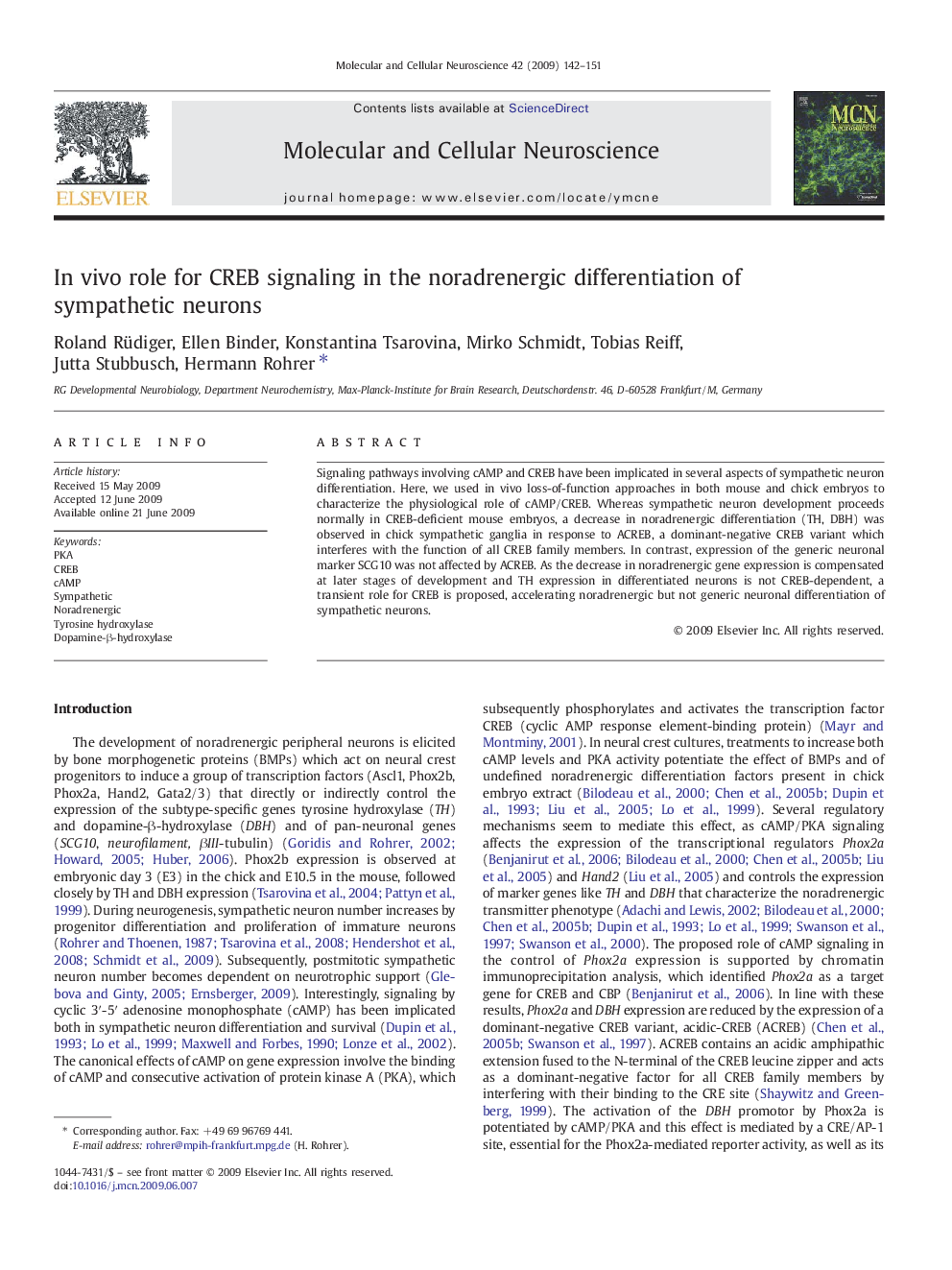| Article ID | Journal | Published Year | Pages | File Type |
|---|---|---|---|---|
| 2198875 | Molecular and Cellular Neuroscience | 2009 | 10 Pages |
Signaling pathways involving cAMP and CREB have been implicated in several aspects of sympathetic neuron differentiation. Here, we used in vivo loss-of-function approaches in both mouse and chick embryos to characterize the physiological role of cAMP/CREB. Whereas sympathetic neuron development proceeds normally in CREB-deficient mouse embryos, a decrease in noradrenergic differentiation (TH, DBH) was observed in chick sympathetic ganglia in response to ACREB, a dominant-negative CREB variant which interferes with the function of all CREB family members. In contrast, expression of the generic neuronal marker SCG10 was not affected by ACREB. As the decrease in noradrenergic gene expression is compensated at later stages of development and TH expression in differentiated neurons is not CREB-dependent, a transient role for CREB is proposed, accelerating noradrenergic but not generic neuronal differentiation of sympathetic neurons.
